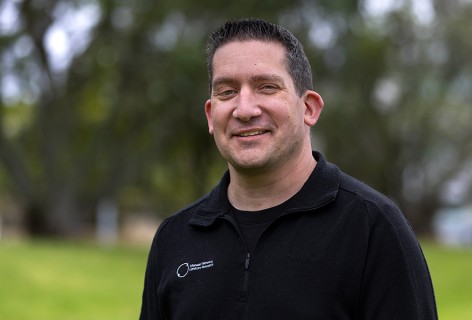Beef + Lamb New Zealand, the Ministry for Primary Industries (through the Sustainable Food and Fibre Futures fund), and other industry stakeholders have launched a $20.7 million programme in partnership with AgResearch and Manaaki Whenua with the bold aim of eliminating the impact of FE on livestock.
The Eliminating Facial Eczema Impacts (EFEI) programme is targeting a $38 million cost saving for AoNZ by the end of the programme, and an additional annual $20 million benefit through improved productivity by reducing disease-related losses, lowering costs, and promoting the overall health and welfare of the animals.
Manaaki Whenua senior researcher Dr Bevan Weir says the programme involves taking a new approach to solving the nearly 100-year-old problem. “Our research will allow us in the future to equip farmers with the tools, knowledge and solutions that they can adopt into their farm systems. While the fungus that causes FE can’t be eradicated, we can eliminate the impacts.”
Initially, research will focus on unravelling the mysteries of the disease and identifying distinct species, which will pave the way for targeted management strategies. “We need to look at improving the diagnostics of FE, especially as the incidence of the disease is expected to rise along with warming temperatures,” says Bevan.
FE is one of farming’s hidden killers and can appear with little warning, but increasingly when temperatures and moisture levels are high. For every animal with clinical evidence of the disease, at least 10 or more will be infected but not show any obvious signs. After an FE season, in the past farmers have lost up to 70% of their hoggets, and a loss of 20% of lambs is not uncommon. In an outbreak in 1981 the cost of lost production to AoNZ was estimated to be $266 million.
Beef + Lamb New Zealand programme manager Lucas MacDonald says that currently mitigating the impact of FE can include breeding for increased tolerance, zinc supplementation, pasture management, and vigilant monitoring. “Each measure, if successful, may provide some defence against FE,” he says.
“However, new tools and solutions for farmers to manage FE that emerge from this programme will contribute to a more sustainable and economically viable livestock industry.”
Importantly, this collaborative effort will involve livestock farmers, sectoral organisations, researchers, extension specialists, veterinarians, and other rural professionals to arm farmers with the knowledge, tools, and solutions to safeguard their flocks.
Key contacts

